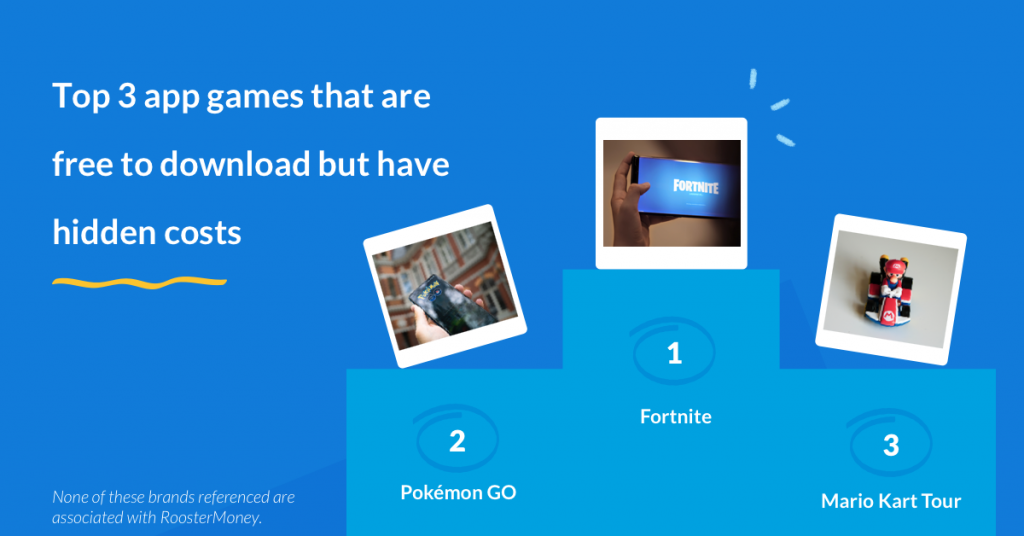This one is a smart spending lesson for the kids – to watch out for hidden costs in app games! Parents know that many kids love to download free app games on phones. Whilst they’re free to download, they’re designed to encourage you to pay out money within the game – known as ‘’in-app purchases.’’
🤔 How do they encourage you to pay out money?
Just as the game is getting exciting, a message will pop up and ask if you’d like to win back lives, buy more objects, or access more levels- very sneaky!
You can progress much easier if you buy these things, so it’s tempting to just press the ‘Buy Now’ button without thinking much of the costs. Some children may not even realise that they’re buying stuff with real money, especially if a debit or credit card is connected to the device they’re using.
Also watch out for free trial subscriptions. Sometimes games are free to download as a trial and it’s easy to forget that once the trial is over, you’ll automatically get charged if you don’t cancel.
👀 Awareness for kids
Kids being aware of these things is important so they can avoid paying money that they don’t want to spend – as it can really add up!

⚠️ Beware of scams
It’s also worth knowing that there are scams that encourage players to claim ‘free credits’ for games. For example, there are blogs aimed at kids to ‘Claim Free Robux,’ which is usually a phishing scam. By clicking a link it will take them to a site that looks legitimate and when they enter in their password, the scammer steals their account. So the lesson here is if something is too good to be true, it probably is!
📦 Loot boxes
Loot boxes (which can be bought via in-app purchases) are one more thing to be aware of. They are virtual treasure chests containing mystery items which may affect your progress throughout the game, or help boost your status. Note that loot boxes aren’t exclusive to app games only, they feature in many online games too.
MPs recently called on the government to classify loot boxes as gambling. This is because when you buy loot boxes, you’re not guaranteed anything of value – so there’s an element of chance (just like when you gamble!) If loot boxes are successfully classified as gambling, it means that selling it to kids is banned. In fact, some countries such as Belgium banned loot boxes altogether and it seems like the UK could follow their steps.
🤗 What can I do to help my child?
As a parent, it’s valuable to recognise that kids may feel pressured by psychological techniques to spend money on loot boxes. If your child is exposed to them, it’s helpful to talk to them about whether or not it’s worth spending money on loot boxes, given that it’s not guaranteed that they’ll get something good. Buying loot boxes once in a while isn’t going to lead to gambling problems, the concern comes if it comes to a habit. You can also help your kids by monitoring your child’s spending online (more on this below)!
💳 Monitor spending with the Rooster Card
The good news is that if you have a Rooster Card, your kids can still have the freedom to make purchases on their favourite apps and games but you can monitor their spending. For more on how in-app purchases work on Apple devices, and how you can set up payment restrictions with the Rooster Card check out this article here. Google Play article to follow soon.
Please note that the Rooster Card is only currently available in the UK.
We hope you found this helpful and if you have any other suggestions on what you’d like us to cover next, then please contact us at hello@roostermoney.com 🤗